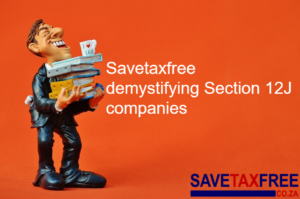Cooking with Mayo
By Leya Mall | 27 March 2019
Welcome back readers, to the Tax-Saving South African, where I walk with you in your personal journey through a range of financial themes.

So there I was scoffing my weekly McDonalds meal – Tuesday night is often KFC while my favourite is Pizza Hut delivery. Guiltily sipping my milkshake, the epiphany hit me: how much money would I save if I didn’t indulge in greasy processed food every week? Would it be more cost-effective if I cooked rather than order from Uber Eats?
Side note: I’m sure the delivery guys now know me personally from the amount of deliveries they’ve done. So, let’s test ordering in versus actually cooking stuff to eat. Cooking does not mean heating up that frozen pizza from Woolies, it means buying ingredients and mixing stuff and heating it and suchlike.
You’ll see from my menus below that this is NOT a health drive — if we can prove there is a saving with either option, we can invest some of that money in a tax-free savings account (TFSA). No promises it will be millions though…
The cooking theory
My mother insists that cooking is the best way to save money so I’ll compare how much a weekly cooking plan would cost. In this week’s episode of Cooking with Mayo, we will create three “signature” dinner dishes for the week, assuming there are leftovers for the next night’s dinner. I’ve sourced grocery prices from an existing South African brand, here’s a clue … its own brand has no name.
The price of these meals don’t include the infrastructure that comes with making them like electricity (if loadshedding isn’t a factor) and water. And I’ve not put in any cost for my valuable time (cos I’m not a lawyer). Cooking also requires basic meal prep items like oil, salt and pepper and condiments like tomato sauce which I also included for you even though you may not buy these things every week. The total amount for a week’s worth of meal adds up to R473,86.
The fast-food theory
The figures below are based on running specials for specific fast-food outlets and also work out to a week’s worth of meals including a pesky delivery fee of R10.
The overall amount for fast-food for one week is R428. Not being too concerned about my waistline, there are healthier alternatives such as Chinese food or microwave meals so you can be flexible.
And the winner is?
Sorry mom, it appears that fast-food totally takes the cake here. Essentially you would be saving R45.86 a week through ordering fast-food as opposed to home-made meals. While the fast-food option may not be more cost-effective for entire families, that’s a discussion I’ll kick down the road for now. (Interesting fact: before adding the meal prep ingredients such as oil/tamato sauce, it was a much closer contest – the difference would only be 90c.)
So, by scoffing takeaways you can squeeze a little more out of your budget for a TFSA. That saving of R45.86 a week works out to R2,201.25 a year. I know – it may seem nicer to treat yourself to that Ralph Lauren bag you’ve been eyeing. But by saving around R2000 a year, you can really beef up your TFSA nicely and pay yourself back in the long run.
Oh God, I’ve just recommended that people should save money by eating junk food. Don’t tell my mother!
Continue following this series to become a wiser tax-saving South African!






